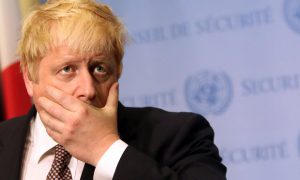
In November I will give a paper on the fallout of the EU referendum at the conference of OPUS (Organisation for Promoting Understanding of Society) entitled “The King is dead, there is now no king”. That’s a parody of the phase “The King is dead, Long live the King” which caught the sense of a monarchy trying to quell potential instability when a king died. The thinking is that the EU has been the containing structure for much of our political and national life for a long time: in voting for Brexit, people attacked that at a very basic level, which has been reflected in the political turmoil that has followed.
The other big idea for that paper is that we are now caught up a very complex response to globalistion. Our democracies are based on the idea that people live, work, and have most of their personal circle in one constituency, so voting for a particular MP to represent them makes sense. But in a globalised world we move around much more than that and are vastly more inter-connected, so the familiar systems are not working, but it is not clear how to replace them. Ironically, the EU seems a good starting point — depending on one’s perspectives it could be seen as a supra-national democracy, or a single market with democratic oversight.
